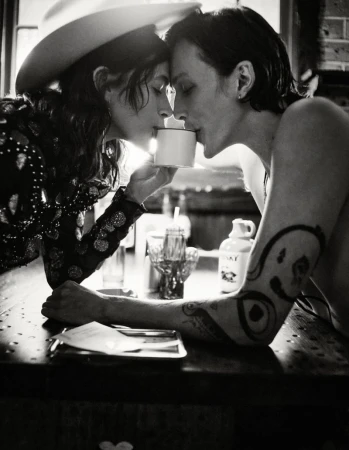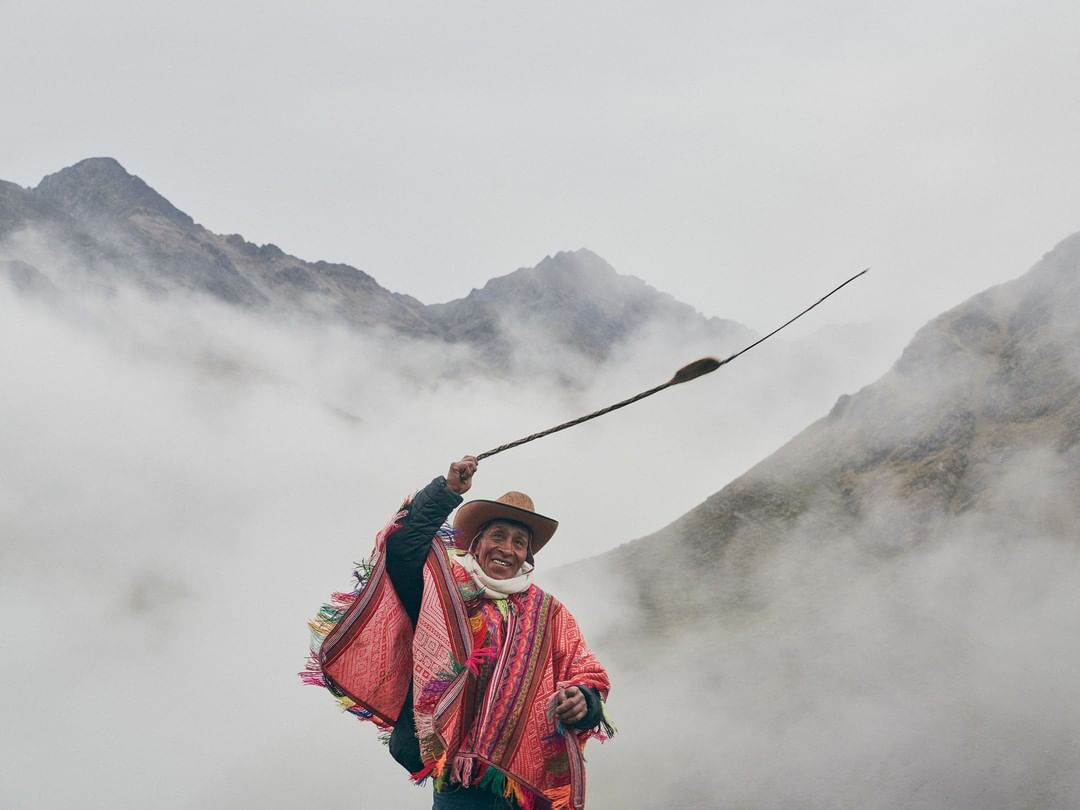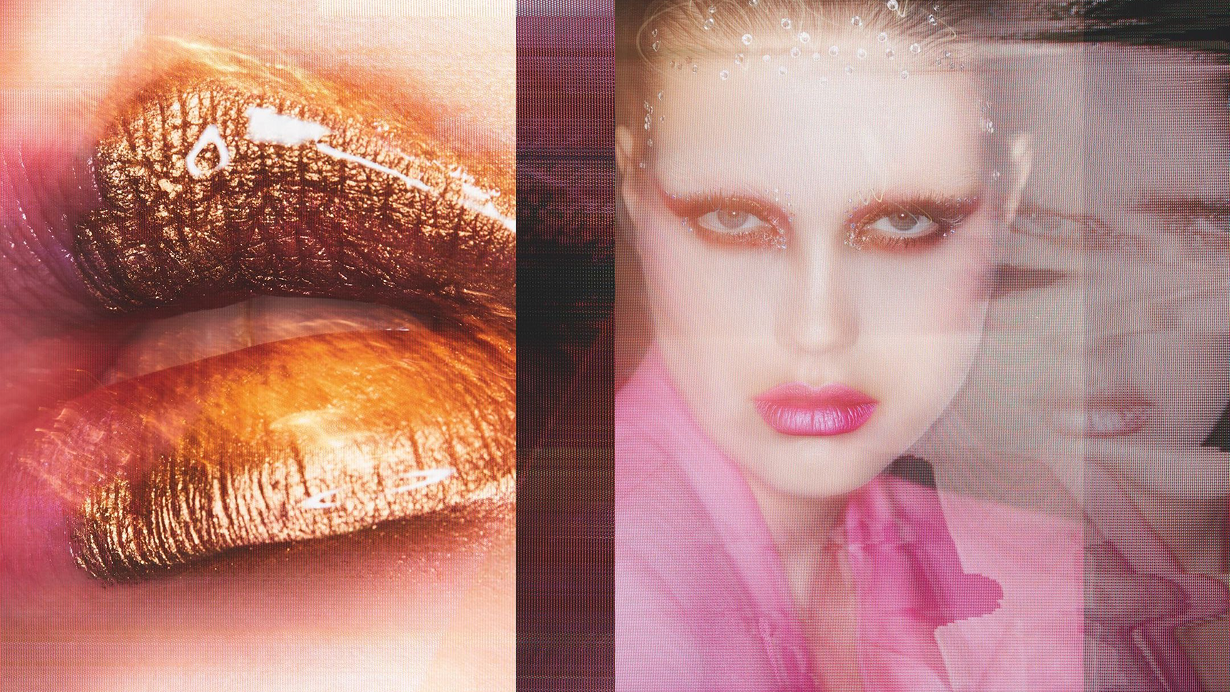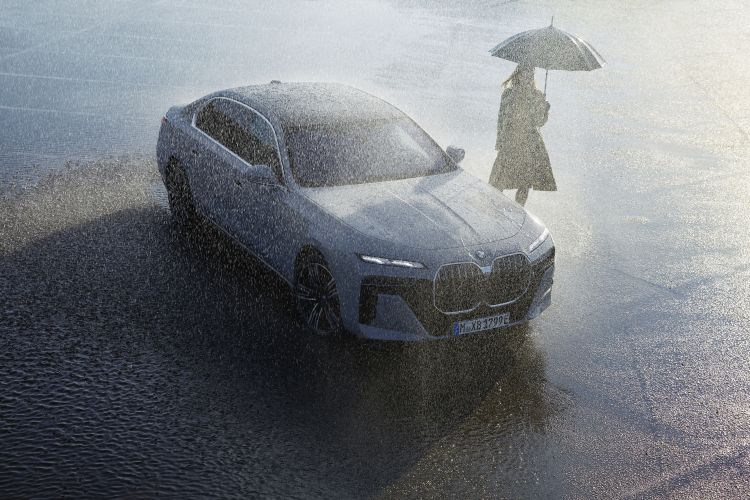
I've known Georges for over 15 years, and in that time, our professional and personal paths have intertwined. Not only have we collaborated on countless projects, but I also had the honor of being the MC at his wedding—just one example of how our friendship transcends the workplace. Georges is one of those rare individuals whose creativity seems limitless, and his ability to navigate the changing landscapes of fashion and photography while staying true to his vision never ceases to amaze me. In this interview, we dive deep into his thoughts on the creative process, industry trends, and what keeps him inspired. It’s always a pleasure to hear Georges’ insights, and I’m excited to share this conversation with you.
What projects allow you to genuinely be creative?
I feel as though all projects; commercial, editorial and even ones where I'm taking more of a creative director role have their own levels of creativity. I feel like it's a bit of a fallacy to think that you ever really truly get creative freedom in anything that you do as a photographer. Because true creative freedom is much more difficult to execute and puts a lot more pressure on yourself. You still have to adapt to a set of rules that other people are placing on you. So I feel like that in itself is a form of true creativity. Being able to create something great within your own realm but under a set of rules given to you by other people. I feel like there's a strong level of creativity in that. So I think the answer is there's never a true creative out there for you. Even when I'm shooting personal work for me, I still feel like I'm responsive to a greater group of people or a greater idea that is not just in my head.
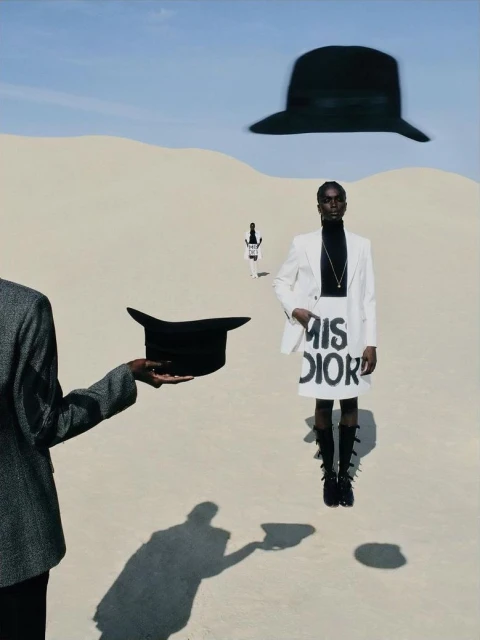
What are the pros and cons of the collaborative process?
I don't love starting with a collection, a model or a hair idea or a makeup idea. I feel as though it needs to start with a much more general concept. Like, for example, I don't know, I should say hypothetically, but I saw a beautiful series of colours on a mountain and then thought of a shoot that revolves around that. The tones of that. I love it when something, the seed idea, comes from that and then you bring in the right people to be able to execute something that has its own creative structure or narrative as a result of the combination of personalities and talents you bring together. I think the collaboration should always be between the entire team from the beginning, not halfway through or later...throughout the creative process. I really believe great creativity is achieved by bringing the right people together and giving them enough scope or freedom to interpret your ideas themselves. You just need to trust that they're the right people to do it.
Tell me your thoughts about the state of the industry?
I think the industry is in a very interesting place at the moment. There was so much work happening, everyone became more conservative in their approach. I think it was a really interesting paradigm because we got out of Covid everyone was saying "new beginning, new time, we're no longer locked up", but everything seemed influenced by a corporate environment. The creative felt more and more conservative, almost like there was a shock to the system, and no one wanted rock the boat. Now, with the economic downturn in retail, I feel as though it got even more conservative again. It became much more of a content grab for people like me, where client's were asking for 30 photos in a day. For someone like me, I will do everything in my power to try and elevate each image even at that shot count.
You are excellent with clients. Take me through a challenging client and how you overcome the situation?
There's only one type of challenging client. That's a client that doesn't know what they want, but thinks they do. A client that doesn't know what they want and knows they don't know what they want is actually quite an easy clientbecause I enjoy going through the process of helping them find something that works for them. But what I find very difficult is when people think they know what they want, but they send out contradictory messages.
How do you stay inspired these days?
Okay, I definitely look at the usual: Instagram, looking through old photos. I don't sit down and it's like, okay, I'm going to sit down and just look at this photo book. I kind of will look at it and watch TV and feed the kids and do other bits and pieces. I just incorporate it in my day-to-day. I would argue that my inspiration is no longer image-based. It's hard to say this without sounding completely corny, I'm more inspired from things that are going on around the world around me, including my parents, my family, my children, my wife, and the environment that I live in. And I'm getting more and more inspiration from things that don't relate exactly to fashion photography. I'm loving everything from documentary photography to still life. It could be something as obscure as an arrangement of candy bars in a 7-Eleven, and I see an interesting group of colours. There's things, elements, like that where I feel like I've become so desperately in search of new avenues to be creative that I'm far more sensitised to the world, the general basic world that exists around me.
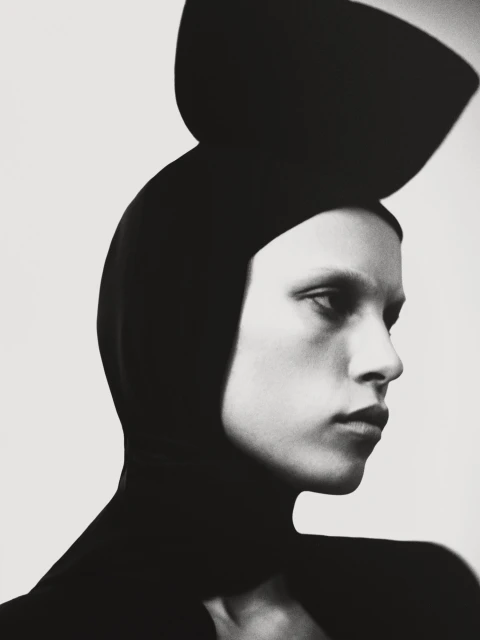
What is your favourite hardware these days? A camera, lens or gadget?
I think my favourite tool in my entire kit is Gaffer tape. The reason why I love Gaffer tape is it gets me out of trouble.
And what about your favourite software?
I rely very heavily on Capture One and Photoshop. They're probably the two major forms of software that I use. Other than that, I think the rest of the processors in the industry are still a little rudimentary. I don't think there's very many good process-based softwares that currently exist in an industry standard with anyone. I think there's a big gap in the market for editing software. There are a lot of people out there that don't do it well and there's no one that does it brilliantly.
You've help nurture the careers of many assistants. What advice do you give younger photographers?
I've always just given one. One piece of advice to anyone that I've ever met, worked with or has asked me for advice, and that is you just cannot stop shooting. There only so much you can learn by studying, but you will only truly learn by doing the work, by pressing the button. So if there's a day that you're not pressing the button, there's a day you're not learning anything. Also, don't worry about copying. Don't let that concern you. Because that's a big part of the learning process. Find a photo you like, try to emulate it. You're not going to be able to emulate it perfectly anyway. No one really can. But that's a really fantastic way of learning. A lot of people in the industry get hung up on not using inspiration or referencing to be able to make. You need to build a set of skills. The most important thing is that you will eventually find your voice. And you will eventually look back at the stuff you copied and not like it. And that is a big part of that journey. So don't beat yourself up by copying things. But in saying that, try not to obviously copy anything that's going to be out in the market at the same time. Or that's not, you know, it's not going to be used for commercial use. But if you're doing it as a learning process, I think it's a very valuable lesson.
Trends go in and out of fashion. How does that effect your work?
There are three types of trends that affect me seasonally. One would be a creative direction trend, which is brief given to me by other people, which I need to execute. The second would be stylistic photographic trends: We're going to make this look like film, we're going to have a saturated red theme, we're going to have values, highlights, etc. And then the third is model or talent trends. And all three of those kind of operate most decently I think. Some of them can extend beyond the theme and some of them can extend for a few years. I think the really important thing is to make sure those three trends don't all merge on the same job at the same time. So I feel as though you can sometimes have two creative direction trends, but if you make the model trends different, you'll get a genuinely different result.
You've worked with a lot of celebrities. Who were you most starstruck by?
I was absolutely most starstruck by a woman that used to be on Play Store when I was a kid. She was literally my whole youth and when I got to photograph her for Peter Alexander, I literally was dumbstruck. I couldn't really speak to her. Like, it was really weird. And I've had the opportunity to speak to, to shoot some fantastic, you know, big celebrities, but she really floored me for some reason.
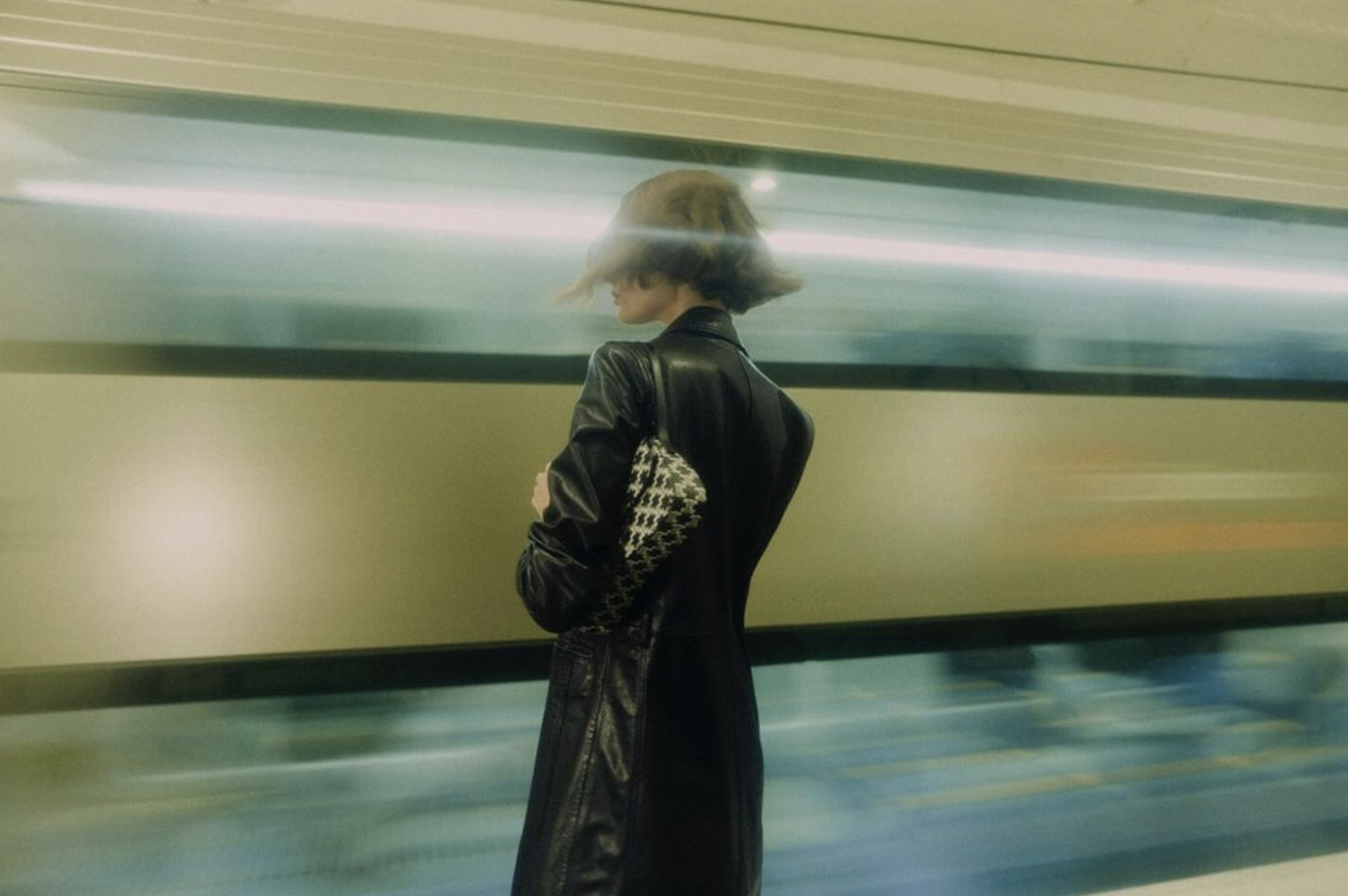
You didn't assistant many photographers before your career took off. How important is apprenticeship or assisting?
There's three ways you can learn photography. One is by assisting, so seeing how other people do it. One is by reading or studying. And one is by doing it, learning through trial and error. They're not mutually exclusive and I think that the best way of learning is by having all three of those overlap. But weighting of those three ingredients should be determined on how you like to learn. And I've never been good at assisting, I don't think I've ever been, by watching other people, I find it much easier to try it out myself and, and fail than to see somebody else do it correctly. I think that's a more valuable thing for me.
It is difficult to become a successful photographer in the first five years of your career. But I think it's almost impossible to remain a successful photographer after 25 years in your career. The most important thing is the ability and love to learn. That is the key to success is really not only learning how to learn but loving that process. To this day, I still get so excited about trying new things and doing new things. It's no longer about trying, you know, big things for me because I pretty much have tried every big thing. I've got a back catalogue of 287,000 retouched photos as of today. I know I saw it in my retouched folder. So, seeing big things like how do I do a motion blur, those things aren't important now. It's how to get little small nuances in that motion blur that I've been focusing on. It's the really small things that I'm focusing on. So, I feel as though learning how to learn is probably the most critical thing and then deciding whether you want to assist, whether you want to take photos or whether you want to study is really up to the individual.
Tell me your thoughts on where AI will take photography and image-making in general?
I’d love to give you a prediction on where AI will bring photography but I just don't know. Every time I've tried to predict something, I have been completely wrong. So I'm not even going to try to predict anymore. But I do think no matter what happens, AI is going to be an integral part of our future. I think understanding it as a photographer is really important. The technicalities of it, I think, are probably less important for a photographer at this stage. But identifying the fact that you as a photographer is a storyteller, is probably the most critical aspect you'll be able to sell through into the new AI economy. We tell stories as photographers. We tell visual stories. So we're in a very good position to maximise the input into effective AI, at least in the short term. Who knows what the deep thinking AI processes will be in the next 50 years. But I think in the short term, they're going to require storage. And I think we're in a very good position to take advantage of that.
What are some of the incorrect assumptions or stereotypes that people have about professional photographers?
That our job is glamorous. Our job is glamorous for 125th of a second on the other side of the lens only, in a very small box. I think it is also glamorous, to be honest. Glamorous in the sense that we get to get up every day and do something that I think the majority of the time you really love. I think that in itself is a form of glamour, but I think it's not what you think it is. I also think there's a misconception of what photographers are like as people. I think that is quite, I think it's commonly said, "Photographers fit into one type of box", but the one thing that I've noticed having spent so much time now with other photographers and assistants is really photographers that come from every walk of life and have every personality type and all those different elements and the variations between those people are what inform their work. And I think that that is where the nuances between photographers get celebrated.
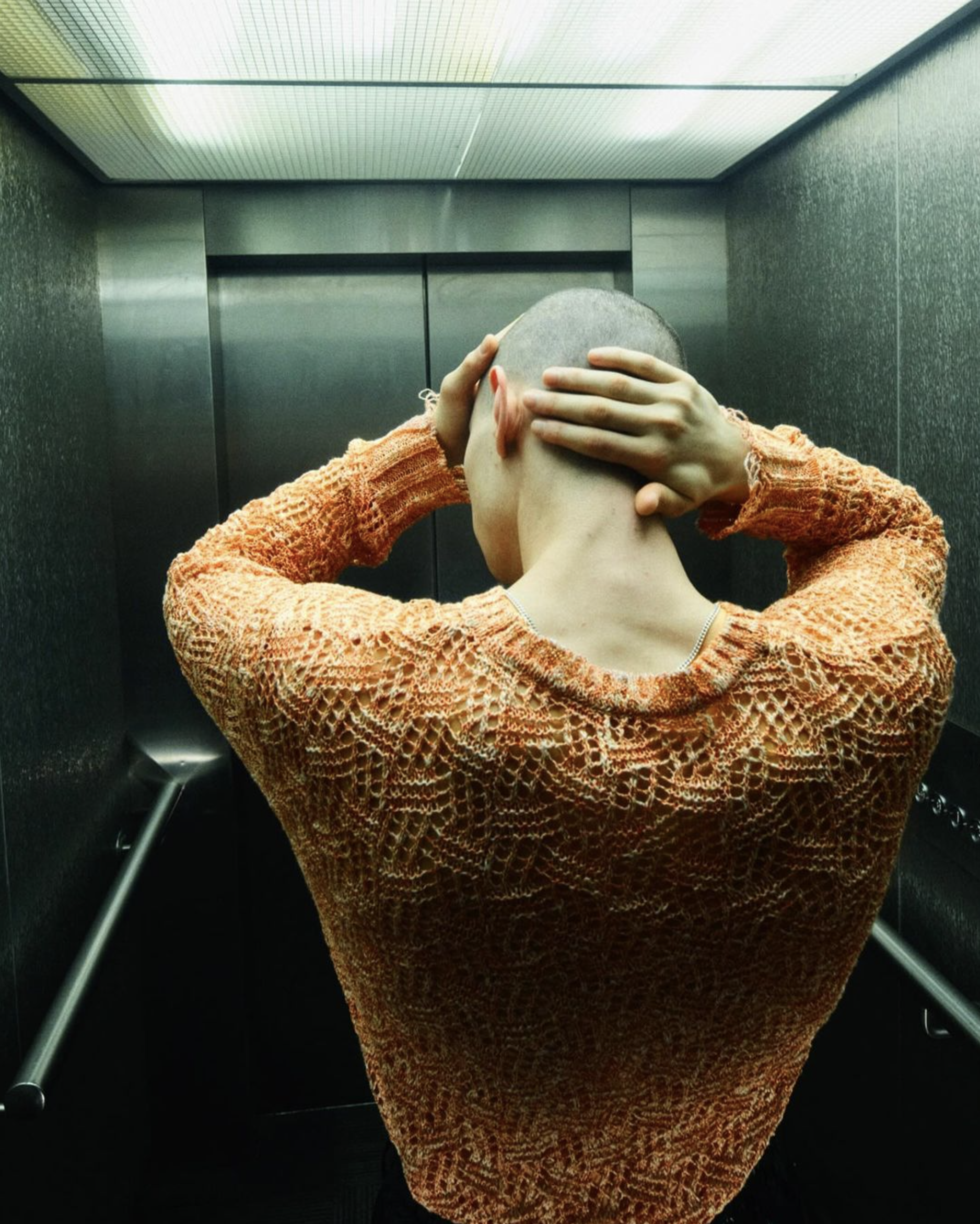
Are there particular Creatives that have had an influence on your career?
My assistants who are now photographers, mostly Adrian Price and to a lesser extent Oliver Beggs. They were slightly younger than me they gave me the perspective to look at the world through their eyes, no longer just through my own generation. I feel as though seeing the world through their eyes and that they're obviously great photographers in their own right. They influenced me probably more than anybody else would have influenced me. I had to start thinking about things differently because they made me think about things differently. Of course there's the usual influences, you know, the Meisel, the Klein... you know, for me it's the Sarah Moons and people like that who I don't even shoot like at all, but I love their work. I feel like I've tried to emulate them at different points in my career very unsuccessfully because you can't emulate a master. I feel like that they've had impact, but I think true impact in my photographic style and in the direction that I've taken my work has actually come from people that have assisted me.
In your youth, you spent a bit of time in front of the camera. What advantage does a photographer have if they have some experience as a model?
The first most obvious answer would be empathy, but I actually don't think that that always plays out in reality. I think it also could be a lack of empathy as well, because you know to a certain extent that people should be able to contribute more to what they're doing as models. So it kind of works both ways, but I think I think the biggest advantage of having worked in front of the camera is I think being very conscious of the small things making the big differences. As a photographer, I think a lot more about the tone of the talent that I'm shooting or how they feel or what their mood is. I kind of try to dictate to get to the result that is most favourable for the shoot. And I think that's because I've been in multiple situations that have been both very happy, fun and uncomfortable. And each of those things bring out a different aspect of your personality. And I think trying to work in that regard with the talent is probably the greatest advantage I've been given for having worked in front of the camera.
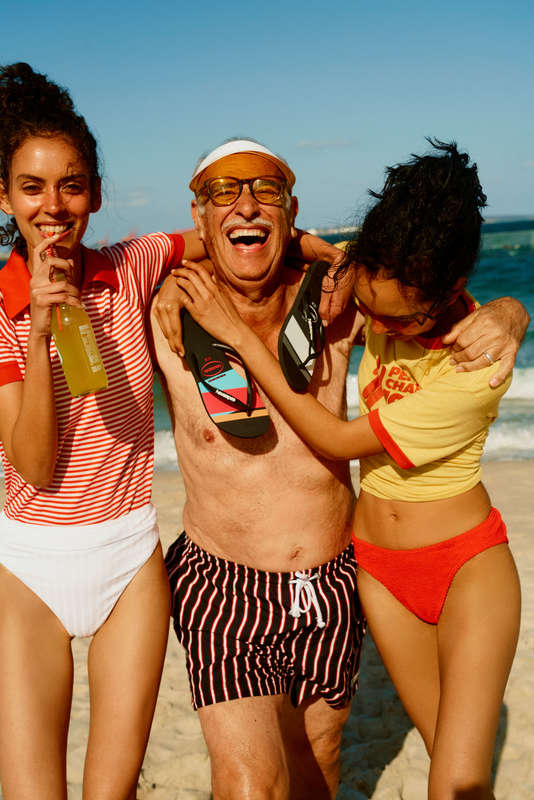
Who are the unsung heroes kind of behind your career?
Mark Vassallo gave me my first crack when when my agency was about to drop me. Most importantly, my mum and dad because when I walked through the front door one day and said to them, "I'm going to quit my job as a high-flying corporate executive and I'm going to start taking pretty pictures of people in your front room" They were like, "that's the best idea ever. If you want to do that, you need to do it, you should do it. Because you should only ever do what you love doing in life". So, I don't think I would have had the confidence to do that if it wasn't for their endorsement and support. So, there's no chance I would be here. And if I wasn't here as a photographer, I wouldn't have met my wife. And if I hadn't met my wife, I wouldn't have my three kids. So, in a roundabout , weird way, I owe my parents my entire life.
Fun Fact
Georges is pronounced George.
Discover 20 of the most inspiring travel photographers shaping how we see the world. From luxury destinations to cultural por...
Discover nine leading beauty photographers who are redefining visual aesthetics in the industry, plus an emerging talent pois...
Explore the diverse styles of automotive photography and discover nine talented photographers who bring vehicles to life thro...


